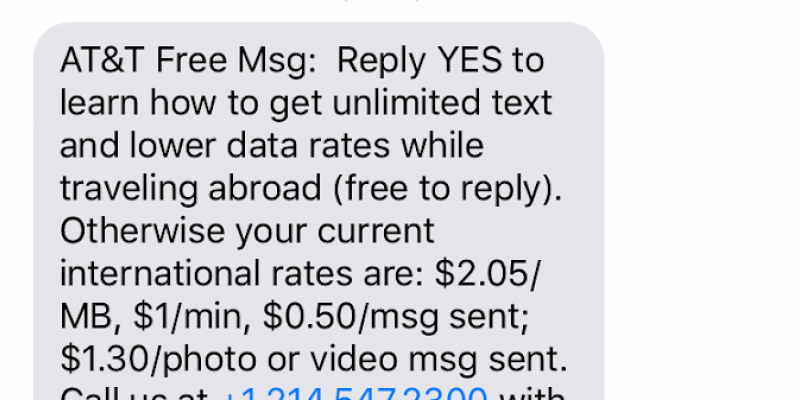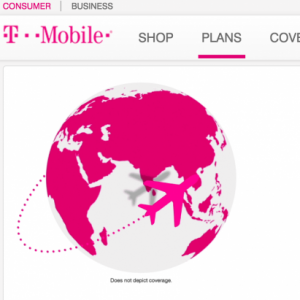Roam with your own phone ★☆☆

It's easiest—but potentially pricey—to use your own phone to travel; just be sure you sign up for an international roaming plan before you leave to avoid huge data charges.
Number one hint for traveling with your own cellphone: Put it into plane mode (turn off all antennas), then turn back on only the WiFi and use the hotel's or public WiFi hotspots to log in and use the Internet and Skype to do the actual communicating.
Will my cell phone work in Britain?
First thing you need to know: Only a phone using the world standard GSM network (in other words, most phones from AT&T or T-Mobile, and smartphones from any provider)—and some CDMA (Verizon, Sprint)—will actually work in Europe.
What's more, even among GSM networks, only a tri-band (or quad-band) phone will work in Europe. (This is because Europe uses different frequencies than the U.S.; so-called "world phones" are designed to work on all three, or four, major frequencies.)
So, if you have a smartphone—iPhone or Android—it will most likely work, since they are equipped with all the antennas.
However, old Verizon fliphones and other mobiles without GSM tech will be utterly unable to make or receive phone calls in Europe. They will merely become expensive electronic pocket watches and address books.
This is not the U.K.'s fault. It's the fault of Verizon, et. al., for pursuing dead-end cellular technologies that the rest of the world has abandoned.
Even if your phone will work, don't use it—unless you have T-Mobile
Even if you have a cell phone that will work overseas, you will pay and arm and a leg to make or receive any calls.
Expect to pay around $30–$45 for an international roaming plan with a limited about of data (varies by provider), and know that the calls and data usage will still be wildly expensive beyond a token amount included with the plan (usually around 100 minutes, 100 texts, and 100 MB of data). We're talking around $1.80 per minute for calls and 50¢ per text.
For more direct dirt on the fine print (and various international roaming and data plans), see the page about international roaming at your own service provider (links are below).
- T-mobile.com - By far the cheapest option for oversaes travel, with inexpensive ($10–$20) plans that will cover data and/or voice beween dozens of countries at no extra charge.Partner
- Att.com - Since it uses the world-standard GSM, all AT&T phones will work abroad—though you definitely should sign up for an international plan before traveling (and even then, calls and data will still be expensive).
- Verizon.com - iPhones, Android, and some other smartphones from Verizon will work in the U.K., though others will not (only some phones use the world-standard GSM technology—or the newer 4G-LTE—while others are still stuck with a dead-end U.S. system called CDMA). However, you definitely should sign up for an international plan before traveling (and even then, calls and data will still be expensive).
- Sprint.com - iPhones, Android, and some other smartphones from Sprint will work in the U.K., though others will not (only some phones use the world-standard GSM technology—or the newer 4G-LTE—while others are still stuck with a dead-end U.S. system called CDMA). However, you definitely should sign up for an international plan before traveling (and even then, calls and data will still be expensive).
- OneSimCard - International Cell phone rentals (voice/data or just data), global SIM cards (for your existing, unlocked phone), portable WiFi hotspots, and satellite phone rentals.Partner
- Cellular Abroad - International Cell phone sales and rentals (voice/data or just data), global SIM cards (for your existing, unlocked phone), portable WiFi hotspots, and satellite phone rentals. Now parterned with National Geographic.Partner
- Mobal.com - International Cell phone sales and rentals (voice/data or just data), global SIM cards (for your existing, unlocked phone), portable WiFi hotspots, and satellite phone rentals and sales.Partner







